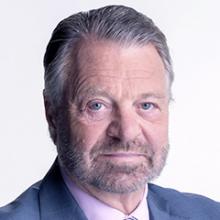You are here
Latin America’s Ukraine
Apr 06,2014 - Last updated at Apr 06,2014
By all indications, the international community has resigned itself to Russian President Vladimir Putin’s Crimean “landgrab”, as US Vice President Joe Biden has called it.
Once Putin decided he wanted to assume the consequences of his acts, there was very little the United States, the European Union or the United Nations could do.
Latin America, meanwhile, is experiencing the opposite problem. Though the region’s countries have the means to stop the growing political, economic and human-rights catastrophe in Venezuela, they lack the will, while the rest of the world’s attention to Ukraine has removed any pressure on them to act.
In Ukraine, the US and the EU seem to have decided on a sensible course of action — or, rather, on a realistic two-track response — that is unlikely to produce spectacular results, but is certainly preferable to passivity.
First, the sanctions imposed so far — visa cancellations, asset seizures or freezes and the like — will not give Sevastopol back to Ukraine, but they will eventually bite, at least in certain Russian business sectors.
Whether this unites the oligarchs, or divides them, and whether it forces them to take their money out of Russia, or bring it back home, cannot be predicted.
But uncertainty is far better than knowing acquiescence. There are simply no alternatives right now, and applying the entire gamut of sanctions from the outset would leave the EU and the US without further options.
Second, and much more important, a tacit anti-appeasement ultimatum has been issued to the Kremlin: additional expansion in Ukraine will lead to much stronger and more painful sanctions.
This may or may not work, but the decisions and announcements at least have the merit of existing, thereby demonstrating the willingness of the G-7 and others to uphold principles and values to which Russia is, in theory, also committed.
Clearly, the world’s democracies lack perfect options, given everyone’s eminently reasonable reluctance to resort to force.
Given Ukraine’s location, history and the potential for trouble, the international community’s greater attention to the crisis there than to the disaster unfolding in Venezuela is not surprising. But it is not appropriate, either.
Recent events in Venezuela imply as many perils and unforeseen, perverse consequences as in Ukraine, and the international community, as well as most Latin American democracies, should be paying much more attention.
For starters, there is energy security. Venezuela has some of the world’s largest oil and gas reserves, and is a major exporter (though smaller than 10 years ago). And, for better or for worse, it is a key supplier to certain countries.
Nearly all of the Caribbean, Central America, and some Gulf ports in the United States depend on Venezuelan low-sulphur crude oil for their power plants, refineries, and balance-of-payment positions.
Cuba is the most dramatic case of dependence: Without subsidised Venezuelan petroleum and the enormous sums paid for the Castros’ doctors — some excellent, some fraudulent — the island’s economy would sink, causing a wave of Cubans to leave, as has occurred repeatedly over the past half-century.
This time, though, the consequences for Florida and Mexico could be graver than before.
But what happens in Venezuela matters for other reasons as well. Targeted repression, imprisonment of opposition leaders, press censorship, shortages, inflation and wanton violence — Caracas is one of the world’s most dangerous cities — have created a situation that appears untenable in the medium term.
The harsh economic and security measures that Venezuela needs to emerge from its current debacle cannot be implemented without some form of consensus, which requires an end to repression and polarisation.
Unfortunately, none of this seems likely if left exclusively in the hands of Venezuelans, who have failed repeatedly over the past 15 years to find solutions to their dilemmas.
Some have suggested a papal mediation; others have advocated intervention by a group of Latin American former presidents.
The problem is that no Latin American government, with the exception of Panama, wants to dirty its hands.
The three that count because of their size — Argentina, Brazil and Mexico — are all frightened of the consequences: Brazil that its companies will lose contracts, Mexico that the Venezuelans will finance opposition to their energy reforms, and Argentina of losing an ally that knows too much.
The other two conceivably relevant countries — Colombia and Chile — refuse to get involved for different reasons.
Colombia needs President Nicolás Maduro’s cooperation to sustain negotiations with the FARC guerrillas; the new Chilean president, Michelle Bachelet, has always had a soft spot for Chavismo and its antics.
In the case of Crimea, the deaths of hundreds of demonstrators in Kyiv and the possible Russian takeover of eastern Ukraine has called into question principles such as nonintervention.
Not in Latin America: the number of students in Venezuela that are killed by government-sponsored paramilitary groups is still viewed as nobody’s business but the Venezuelans’, even though the country is a party to every regional instrument of international human rights law.
And no outside mediation is feasible without a minimum of censure or criticism of Maduro’s extremism, even if the opposition takes its lumps, too, for some of its factions’ radical, occasionally subversive stances.
Paradoxically, whereas the Western powers are probably powerless in Ukraine, Latin America’s major players could exert great influence in Venezuela.
Economic sanctions on Russia may eventually hurt, and the Kremlin may desist from further encroachment; but the Ukrainian crisis is largely impervious, in the short term, to outside involvement.
In Venezuela, the danger is just as great for everybody, and addressing it is much cheaper and easier. But doing so requires what most Latin American governments sorely lack: vision and courage.
The writer, former foreign minister of Mexico (2000-2003), is professor of politics and Latin American and Caribbean studies at New York University. ©Project Syndicate, 2014. www.project-syndicate.org













